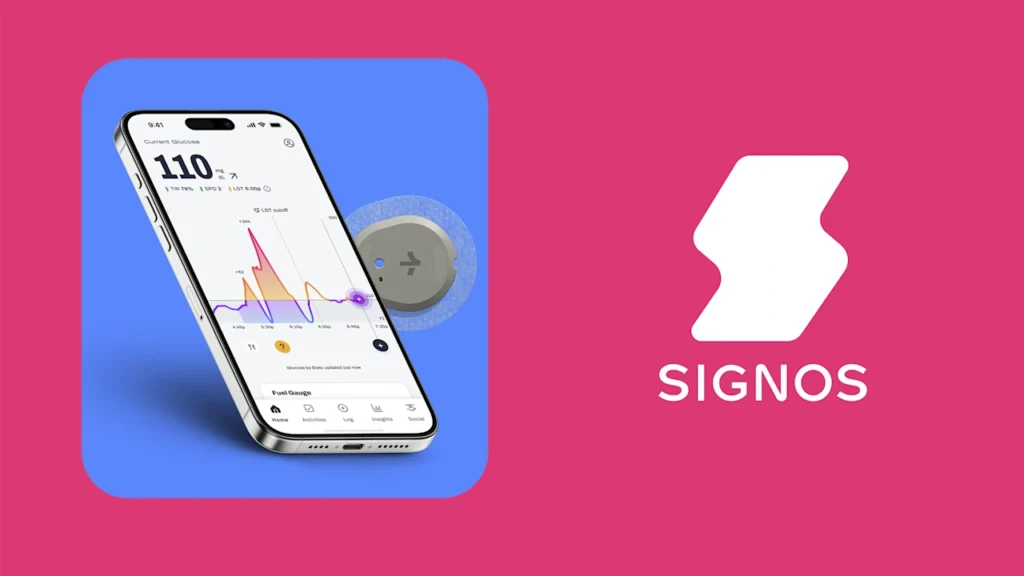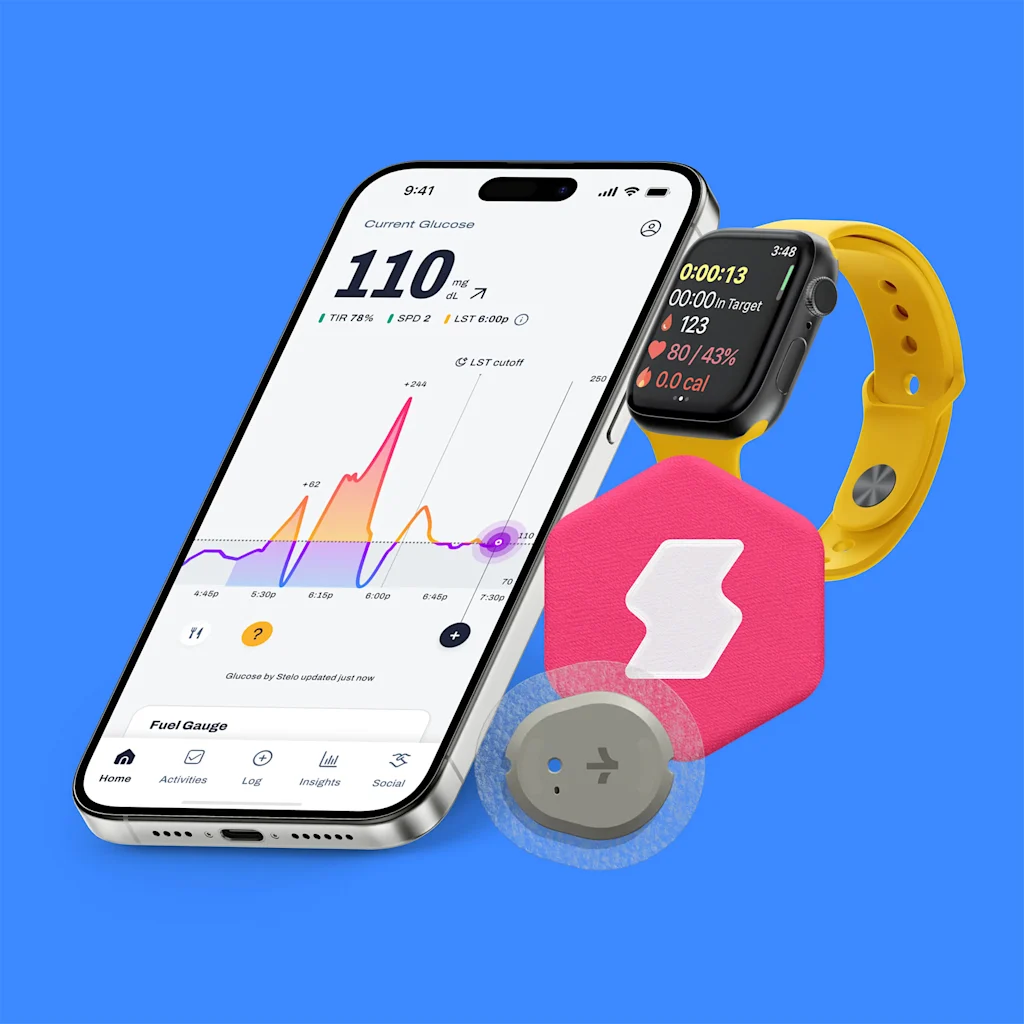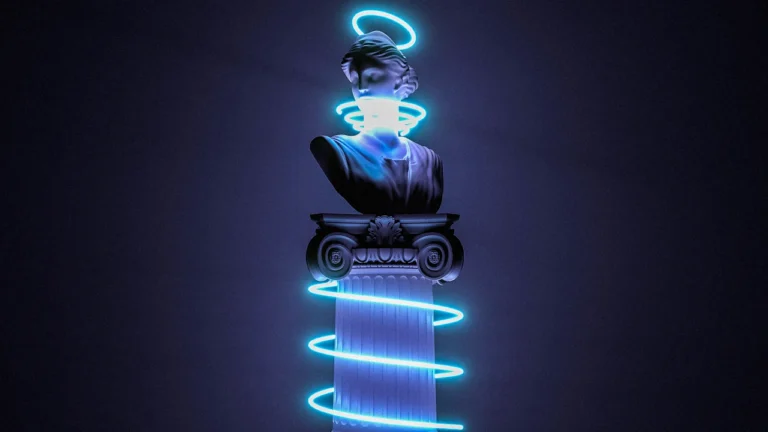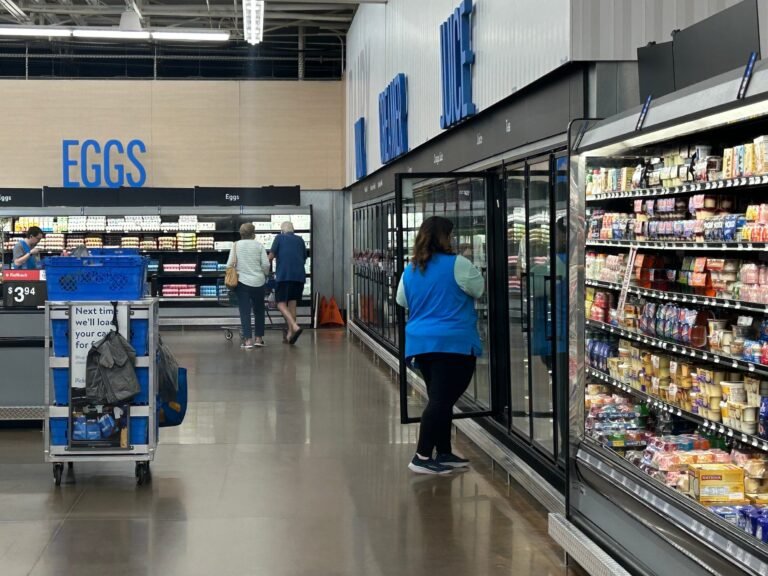
Small wearable patches that continuously scan your blood and zap numbers to your smartphone are about to be everywhere.
Once the sole domain of people with diabetes, glucose monitors are gaining popularity as a health-tracking accessory that’s not too different from an Apple Watch or an Oura Ring. On Wednesday, the Food and Drug Administration approved a glucose-monitoring system from the startup Signos for weight management—a first for the tech, which represents a growing corner of the digital wellness space.
“Everyone deserves access to insights that help them live healthier, longer, more vibrant lives,” Signos CEO Sharam Fouladgar-Mercer said in a press release. “Signos isn’t just about data; it’s about giving people ownership over their health and weight journeys in a way never before seen.”

Signos designed an app that sets glucose range goals based on individual needs and tailors them over time, encouraging its users to make healthy lifestyle choices to meet them. The app pairs with the Stelo continuous-glucose-monitor (CGM) sensor patch made by Dexcom, which already sells its devices over the counter for around $100 a month.
“This is the first-ever FDA clearance for a system for weight that isn’t a pharmacological intervention, isn’t a surgical intervention,” Fouladgar-Mercer told Stat News.
FDA approval is an expensive, time-intensive process, but obtaining the clearance means a Signos subscription could be covered by health savings account (HSA) and flexible spending account (FSA) plans and potentially be reimbursed by insurance in the future. Signos sells its plans for $129 for six months. They include glucose sensors and access to its app, which converts real-time blood sugar data into health insights and tips.
The company can also now boast about being the “world’s first and only FDA-cleared app and CGM for weight management and wellness,” which might take it pretty far in a soon-to-be crowded market. As is the case with all technology these days, Signos uses AI to offer personalized recommendations based on the data it logs. Users can also track their food and exercise within the app, blending that data with glucose monitoring so that they can make changes to their behavior and diet.
Fouladgar-Mercer believes that bariatric surgery patients and some people using GLP-1s for weight loss will want the additional insights possible with the Signos app. The app also offers an alternative nonpharmaceutical path for people looking for new ways to succeed in their weight management goals, and could provide an off-ramp for former GLP-1 users looking to maintain their results with behavioral changes.
One piece of the MAHA movement
Obsessively quantifying the self right down to your blood sugar levels isn’t everyone’s cup of tea, but it is a major health goal for the Trump administration. Health and Human Services Secretary Robert F. Kennedy Jr. is championing health-tracking devices as part of the “Make America Healthy Again” movement, which is pursuing disparate health goals—from regulating ultra-processed foods to investigating well-studied vaccines (sowing doubt about lifesaving shots in the process).
“It’s a way . . . people can take control over their own health. They can take responsibility,” Kennedy said at a recent House Subcommittee on Health hearing. “They can see, as you know, what food is doing to their glucose levels, their heart rates, and a number of other metrics, as they eat it. And they can begin to make good judgments about their diet, about their physical activity, about the way that they live their lives.”
Beyond RFK Jr., the U.S. government is poised to have a major glucose-tracking booster in the administration. In June, Trump swapped out his previous surgeon general nominee in favor of Dr. Casey Means, a wellness industry figure who cofounded a blood-glucose-monitoring startup called Levels. Like Signos, that company sells subscription access to an app, pairing custom software with off-the-shelf glucose monitors made by Dexcom. Unlike Signos, Levels is not FDA-approved for weight management and is marketed for general wellness.
Kennedy, a skeptic of weight-loss drugs, has advocated for dietary and behavioral changes over GLP-1s to reverse the most worrying U.S. health trends. “We think that wearables are a key to the MAHA agenda—Making America Healthy Again,’” he said. “My vision is that every American is wearing a wearable within four years.”


